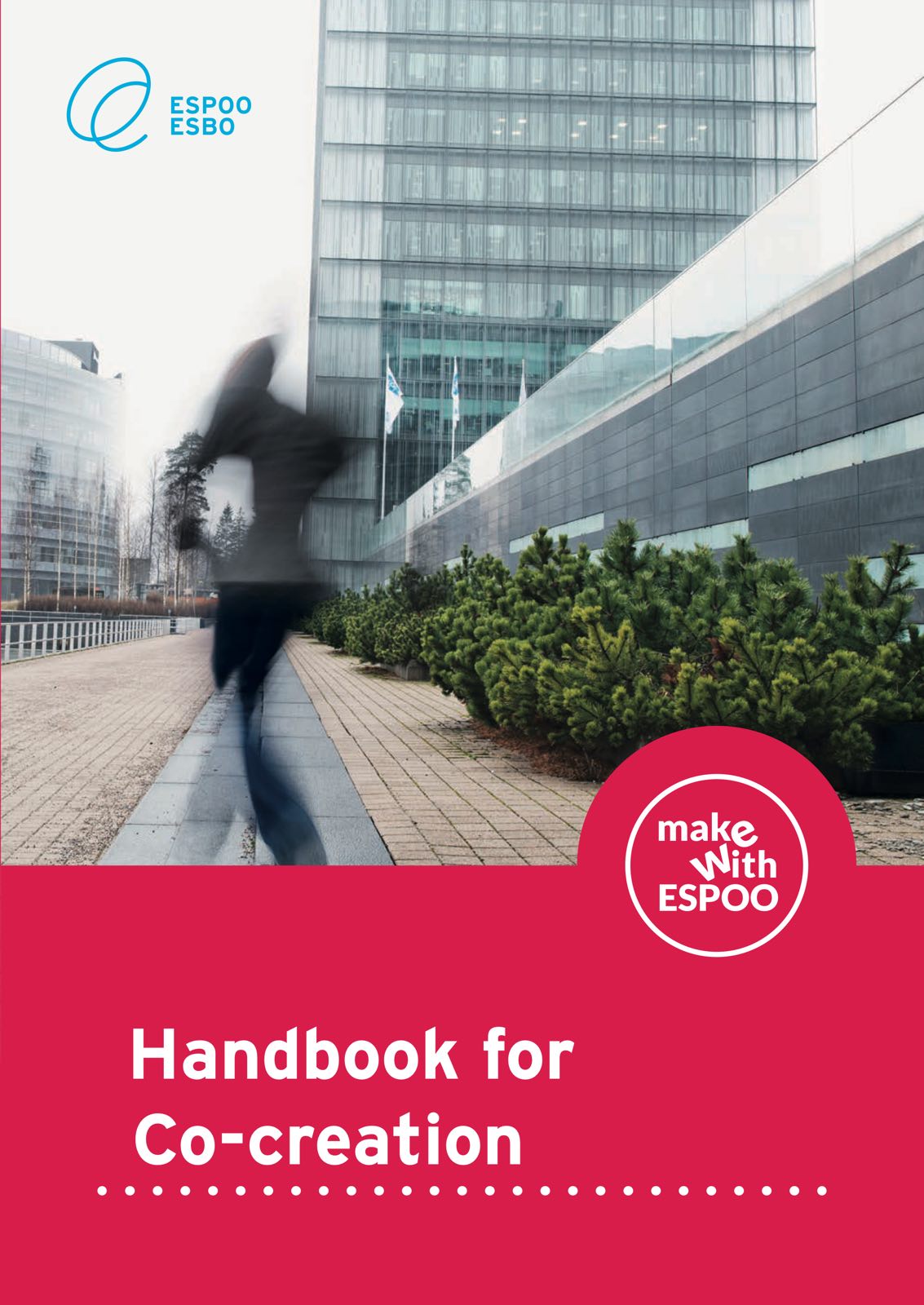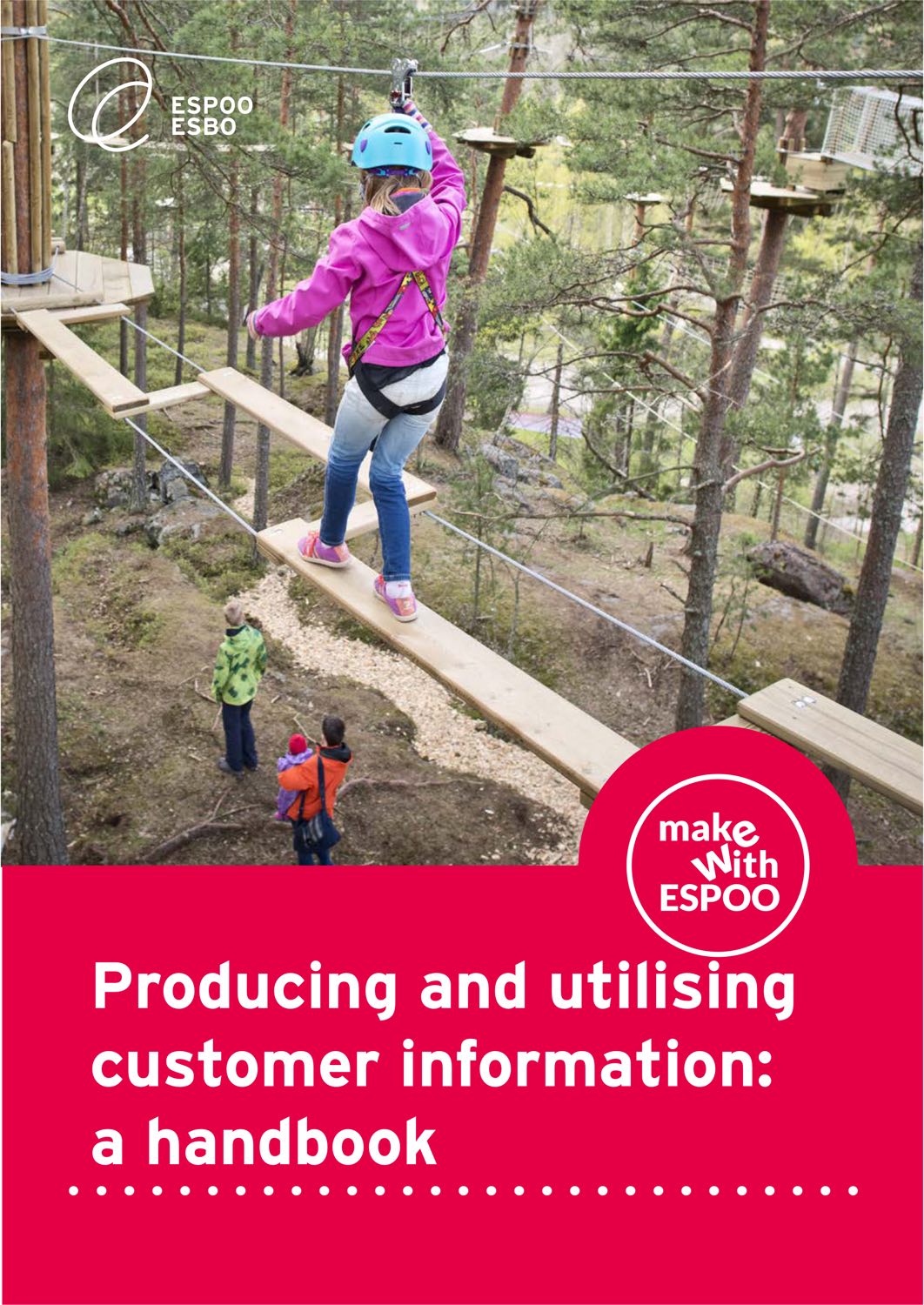Handbooks and methods developed and utilised by the UserCentriCities partner cities and regions in their design of user centric services. You will also find commentary videos and stories by the city developers on how they put citizens to the center of development! The majority of the material is in English, however, some of the publications are in their original language.
Digital Services Guide
This Digital Services Guide by the Government of Catalonia describes how to design the services offered by the public administration, taking into account the following:
- The importance of prioritising the user experience. The design of the service must be focused on user-friendliness.
- The relevance of updating the way in which public workers proceed in order to overcome tasks that have become meaningless in the digital context.
The guide includes the principles, steps and tools to apply the methodology and is available in English, Spanish, Aranese and Catalan.
The Innovation Guide
This innovation guide compiled by the Swedish Association of Local Authorities and Regions (SALAR/SKR) supports the public sector in user-driven innovation and service design. It includes concrete methods, templates and steps for user-driven innovation.
It also provides support for the project team: 6 tips that will make it easier for project groups to start working with the Innovation Guide as methodological support in development projects.
Guidelines - Design, User Experience and User Interfaces
A toolkit by the city of Milan for developing digital services. The toolkit includes a description of the methods and user experience co-design process utilized by the city developers. It also includes general principles to be taken into account when designing a digital public service.

Handbook for co-creation
This handbook by the city of Espoo supports the creation of practices and rules for co-creation and its management for cities. With the models, examples and tools presented in the handbook, both residents and representatives of cities, companies, communities and research, development and innovation actors can use co-creation to identify and implement solutions for current and future challenges.
Below, Veera Vihula, the Development Consultant at the city of Espoo, gives an introduction to the toolkit:
Ethical Digital Standards: A Policy Toolkit
This open source toolkit by the city of Barcelona supports cities in developing digital policies that put citizens at the center and make Governments more open, transparent, and collaborative. Topics include Digital service standards; Technology code of practise; technological sovereignty; Free Software Management, Agile methodologies; ICT Procurement; Innovative public procurement; and Gov. measure ethical date management.
On the page you will also find out what are the ethical digital standards in Barcelona.

Producing and utilizing customer data
In this handbook, the city of Espoo presents a solution to be used to systematically collect and analyse customer data. This solution can be utilised by both the city and various interest groups, for instance in the development of multichannel services or in creating new business.
The aim of the handbook on the production and use of customer information is to make customer relationships based on customers and not the organisation. In service development at the municipal level, the customers, their well-being and needs are at the centre, not the organisational structure. In this way, it is possible to produce services both proactively and economically.
Framework for customer information knowledge management
This framework created by the city of Espoo helps and supports managers and developers of services and activities to find new dynamic ways of grouping the municipal customer relationships. This can help the municipality to improve well-being, vitality and financial balance in the municipality and its own operating environment.
Iso Omena Service Centre as an innovation platform
This application example by the city of Espoo on the Iso Omena Service Centre describes how different frameworks, manuals and tools can be practically utilised in the development of services, especially when creating a completely new platform for public services. Describing the Service Centre as an innovation platform opens up the thinking of how various service and urban environments can act as enablers and support open participation, learning and co-creation.
The Service Centre is a concept for public services intended to make the daily life of Espoo residents easier and to offer them an opportunity to use several different services on the same visit. The Iso Omena Service Centre offers diverse services. It hosts ten different public service units, some of them offering the city’s services and others offering regional and governmental services.
Business Espoo – how the Service Centre for businesses was created
This Handbook describes the development of Business Espoo, especially from the perspective of the city’s role. It provides a concrete example on how the city of Espoo created a service centre for businesses.
KYKY Living Lab handbook for co-creation by schools and companies
This handbook by the city of Espoo describes Espoo’s KYKY Living Lab operating model for co-creation as well as the related key concepts, principles, rules and prerequisites, actors and their roles and responsibilities in the context of schools and companies. It also lists the templates (including e-forms) used at the various stages of co-creation as well as things that should be taken into account in them (Appendix 2).
Pagination
- Page 1
- Next page
